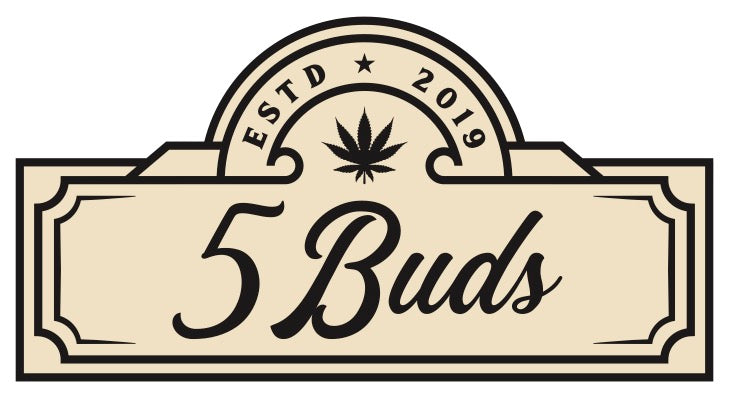
CBD and THC are two of the most talked-about compounds found in cannabis plants. But even though they're both cannabinoids, they're vastly different in their effects and makeup.
So what exactly sets CBD and THC apart? Let's dive into the key distinctions between these two cannabis compounds.
The Main Difference Between CBD and THC
The primary difference lies in their chemical structures and how they interact with the body's endocannabinoid system (ECS). While structurally similar, there's one crucial variation that makes all the difference.
THC contains a cyclic ring in its molecular makeup, while CBD has a hydroxyl group instead. This minor change is what causes CBD and THC to engage the ECS in completely opposite ways, producing very different outcomes.
THC is the main psychoactive ingredient in cannabis that creates the classic "high" associated with marijuana usage. In contrast, CBD is non-psychoactive and won't get you stoned or impair your cognitive abilities.
The Potency Question: Is CBD as Powerful as THC?
No, CBD is not nearly as potent as THC when it comes to psychoactive effects. As mentioned, THC is the driving force behind the intoxicating, euphoric sensations cannabis is known for. CBD, on the other hand, doesn't produce any mind-altering highs on its own.
That said, CBD is incredibly potent in its own right regarding potential therapeutic benefits. More on that later!
Chemical Structures: The Subtle But Crucial Difference
Let's take a closer look at those chemical structures. Both cannabinoids contain 21 carbon atoms, 30 hydrogen atoms, and 2 oxygen atoms. Pretty similar molecular profiles.
However, there's a critical variation in how those atoms are arranged. THC has a cyclic ring, while CBD contains a hydroxyl group. This one small tweak radically changes how each compound interacts with the endocannabinoid receptors in our bodies.
Read more related: Top Uses and Benefits of Full Spectrum CBD Oil
The Legal Landscape for CBD vs. THC
Another major point of distinction is their legal status, particularly in the United States. Federal law draws a line based on each compound's source.
CBD derived from industrial hemp (defined as cannabis plants containing less than 0.3% THC) is legal for use across the country. Conversely, THC remains federally prohibited as it's the main psychoactive component in marijuana.
However, state laws can vary. While hemp-derived CBD is generally accessible, marijuana and THC regulations differ from state to state. Some allow recreational adult-use, while others prohibit any use outside of specific medical contexts.
When considering CBD or THC products, always review the latest legal frameworks in your area.
Medical Benefits: How CBD and THC Compare
Both CBD and THC show promise for various therapeutic uses, though their potential benefits don't perfectly overlap. Here's a quick overview comparing some key medical applications of each compound:
CBD has gained attention for:
- Pain relief
- Reducing anxiety and depression
- Alleviating cancer treatment side effects
- Improving sleep quality
- Potential neuroprotective properties
THC has been researched for:
- Pain management, especially neuropathic pain
- Reducing nausea and increasing appetite
- Relieving muscle spasticity from multiple sclerosis
- Potential benefits for glaucoma patients
While more clinical research is still needed, the wide range of possible applications is quite exciting. Many believe that CBD and THC used in combination may offer an enhanced "entourage effect" for holistic benefits.
Read more related: What is CBD Oil Explained Full Spectrum vs Broad Spectrum
CBD vs. THC: Drug testing
Another crucial difference between CBD and THC is their potential for detection in drug tests. THC and its metabolites can be detected in urine, blood, and hair follicle drug tests for several weeks or even months after use, depending on the frequency and amount consumed.
On the other hand, pure CBD products derived from hemp (with less than 0.3% THC) should not trigger a positive drug test result for THC. However, it's essential to note that some CBD products may contain trace amounts of THC, which could potentially lead to a positive test result, especially with frequent or high-dose use.
Frequently asked questions
How does CBD make you feel when smoking it?
Unlike THC, CBD does not produce a "high" or psychoactive effects when smoked or consumed. Some users report feeling more relaxed or calm after taking CBD, but it does not impair cognitive function or cause intoxication.
Is CBD better than THC for you?
There is no definitive answer as to whether CBD or THC is "better" as it depends on the individual's needs and preferences. CBD may be preferable for those seeking potential therapeutic benefits without the psychoactive effects of THC, while others may find a combination of CBD and THC more effective for certain conditions.
Is it OK to smoke CBD every day?
While CBD is generally considered safe, even with prolonged use, it's always best to consult with a healthcare professional before starting any new supplement regimen, especially if you have an underlying medical condition or are taking other medications.
Information Source:



